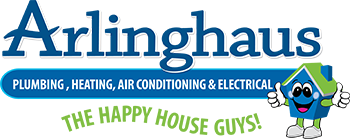You’ve probably heard people talk about hard water before, but have you ever stopped to think about whether it’s something you’re dealing with, too? It’s not always obvious, and unless you’re on the lookout for specific clues, you might not even realize it’s a problem.
Hard water can mess with a lot in your home, including your plumbing, your appliances, and even your skin and hair. But don’t worry — once you recognize the signs, there are ways to fix it. Let’s break down the signs your home may have hard water and what you can do about it.
What Is Hard Water, Anyway?
Before diving into the telltale signs your home may have hard water, let’s cover what hard water actually is. Hard water contains high levels of minerals like calcium and magnesium, which get picked up as water moves through the ground and into your home. These minerals can create scale buildup inside pipes, appliances, and fixtures, making things harder to clean and potentially reducing the efficiency of your plumbing system.
Are you questioning whether you have hard or soft water? The difference between hard and soft water is simple: soft water has fewer minerals. While hard water isn’t necessarily unsafe to drink, it can create some frustrating problems that affect your daily life.
Signs Your Home May Have Hard Water
Now that you understand the difference between hard and soft water and how it affects your daily life, you may have some questions or concerns. Unsure if your home has hard water? We’re here to help you get to the bottom of it.
Here are the biggest signs of hard water to look out for:
1. Soap Scum and Hard Water Spots Everywhere
Tired of seeing hard water spots on your dishes no matter how often you clean them? As water evaporates, it leaves behind mineral deposits like calcium carbonate, creating annoying white spots on glassware and silverware.
2. Your Skin and Hair Feel Dry
Unfortunately, dry skin and hair can be some of the most common signs of hard water. Hard water strips moisture from your skin and hair, leaving them feeling dry and irritated. If you’ve noticed itchy skin, rough patches, or hair that seems dull and lifeless, the mineral content in your water might be making things worse.
3. Your Clothes Don’t Feel as Clean
Ever pull freshly washed clothes out of the dryer, only to have them feel stiff and rough? That’s another sign of hard water. Hard water makes it harder for laundry detergent to do its job, which means your clothes might still have some soap residue left behind.
4. Reduced Water Pressure
Over time, mineral buildup inside pipes can slow down your water flow, leading to reduced water pressure in your sinks and showers. If your once-powerful shower now feels weak, don’t ignore it. This can be one of the signs of hard water.
5. Appliances Wear Out Faster
Your water heater, washing machine, and dishwasher all rely on water to work properly. However, hard water can lead to scale deposits inside these appliances, making them less efficient and causing them to use more energy. If you’ve noticed your utility bills creeping up, this could be part of the problem.
How to Fix Hard Water Problems
If you’re dealing with hard water, you don’t have to just put up with it. Here are some ways to improve the water in your home:
Try the Soap Test
A quick way to check if you have hard water is to do a soap test. Fill a bottle with water, add a few drops of liquid soap, and shake it up. If the soap forms a nice lather, your water is likely soft. If it just forms a thin, milky layer, you probably have hard water.
Get Your Water Tested
The best way to confirm you have hard water is to have your water tested. A professional plumber can measure the water hardness level and recommend the best solution for your home.
Use Vinegar for Cleaning
If you already have scale buildup, vinegar is a great natural cleaner. It helps break down calcium deposits and mineral buildup on showerheads, faucets, and even inside your dishwasher.
Try Water Filtration
A water filtration system can help remove minerals like calcium and magnesium, improving the overall water quality in your home. This is a great option if you’re looking for a way to reduce scale buildup while also filtering out other minerals and potential contaminants.
Is Hard Water Bad for Your Health?
Hard water isn’t necessarily harmful to drink, but it can contribute to a few minor issues:
- Some people find that it irritates sensitive skin or worsens skin conditions like eczema.
- If you’re on a low-sodium diet, using a traditional water softener may not be the best bet, since it adds sodium ions to your drinking water.
- Hard water and soft water both contain essential minerals, but some prefer the taste of bottled water or filtered water instead.
If you’re worried about health risks, you might want to install a drinking water filter to remove any other minerals that could affect taste or quality. Don’t hesitate to call Arlinghaus to learn more about our water quality services in Erlanger, KY, Cincinnati, OH, and the surrounding areas.
Say Goodbye to Hard Water With Arlinghaus!
If you’re noticing telltale signs of hard water in your home — like clogged pipes, scale buildup, rough clothing, or dry skin — you don’t have to deal with it forever. Our plumbers in Cincinnati can help you find the right solution.
At Arlinghaus, we take pride in serving homeowners across Greater Cincinnati, Northern Kentucky, and Southeast Indiana. With offices in Erlanger, KY, and Cincinnati, OH, we’re always ready to help improve your water quality and keep your plumbing in top shape.
Now that you know the common signs your home may have hard water, why wait? Schedule your service today!


